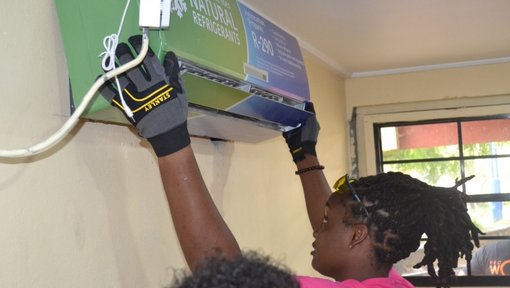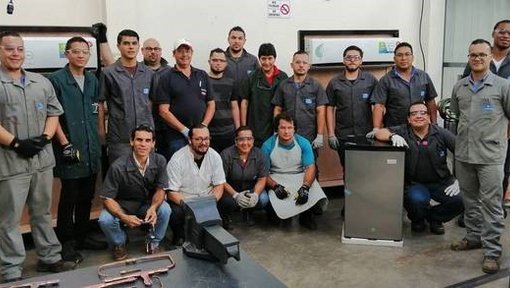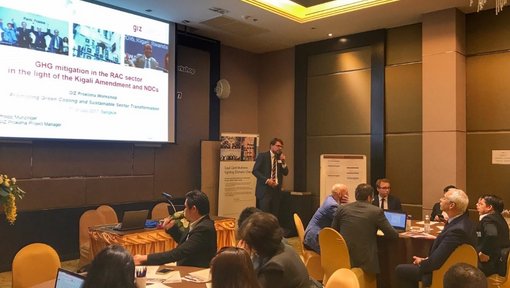Cool Contributions fighting Climate Change (C4)
C4 aims to further pursue the international control of F-gases and improves the framework conditions for the use of energy-efficient RAC equipment and environmentally-friendly natural refrigerants and blowing agents. Partner countries include Costa Rica, Grenada, Iran, Philippines and Vietnam.
Map with project related countries
Partner Countries
In doing so, the project supports its partner countries in formulating mitigation strategies in the RAC sector and thereby advancing their NDCs. This includes for example the development of RAC sector GHG inventories, as a basis for target-oriented implementation of emission reduction measures in the sector, the analysis of existing RAC policies and regulations and the reduction of barriers that hinder the introduction of energy-efficient green cooling technologies.
Because of the especially high mitigation potential in the partnering countries, C4 has built up extensive expertise in the field of sustainable room air conditioning and has established itself in the partner countries as a pioneer in the use of natural refrigerants in this sector. Furthermore, C4 promotes international collaborative structures and processes by delivering policy advice, methods and tools including channels for communication such as expert groups and regular dialogues.
This for instance includes the development of the concept paper “Coordinating Finance for Sustainable Refrigeration and Air Conditioning”, which serves as input to further design of the financial landscape in the cooling sector. By assisting Costa Rica in developing a GCF project on sustainable air conditioning, the project aims to turn complementing finance form different climate funds into practice.
Bildergalerie
Especially the cooperation with the partnering countries Costa Rica, Philippines and Grenada produced several best practice cases like the development of NDC-strategies for the RAC sector or the establishment of training programmes for RAC technicians, trainers and policy makers on the safe use of natural refrigerants Grenada, for example, proofed itself to be a frontrunner and presents thus the potential to multiply the project goals in other island states in the region. This and other best practices were edited and published in the R290 Split AC resource guide (opens in a new window), which focuses on a technology that is deemed crucial in reducing emissions in the RAC sector.



